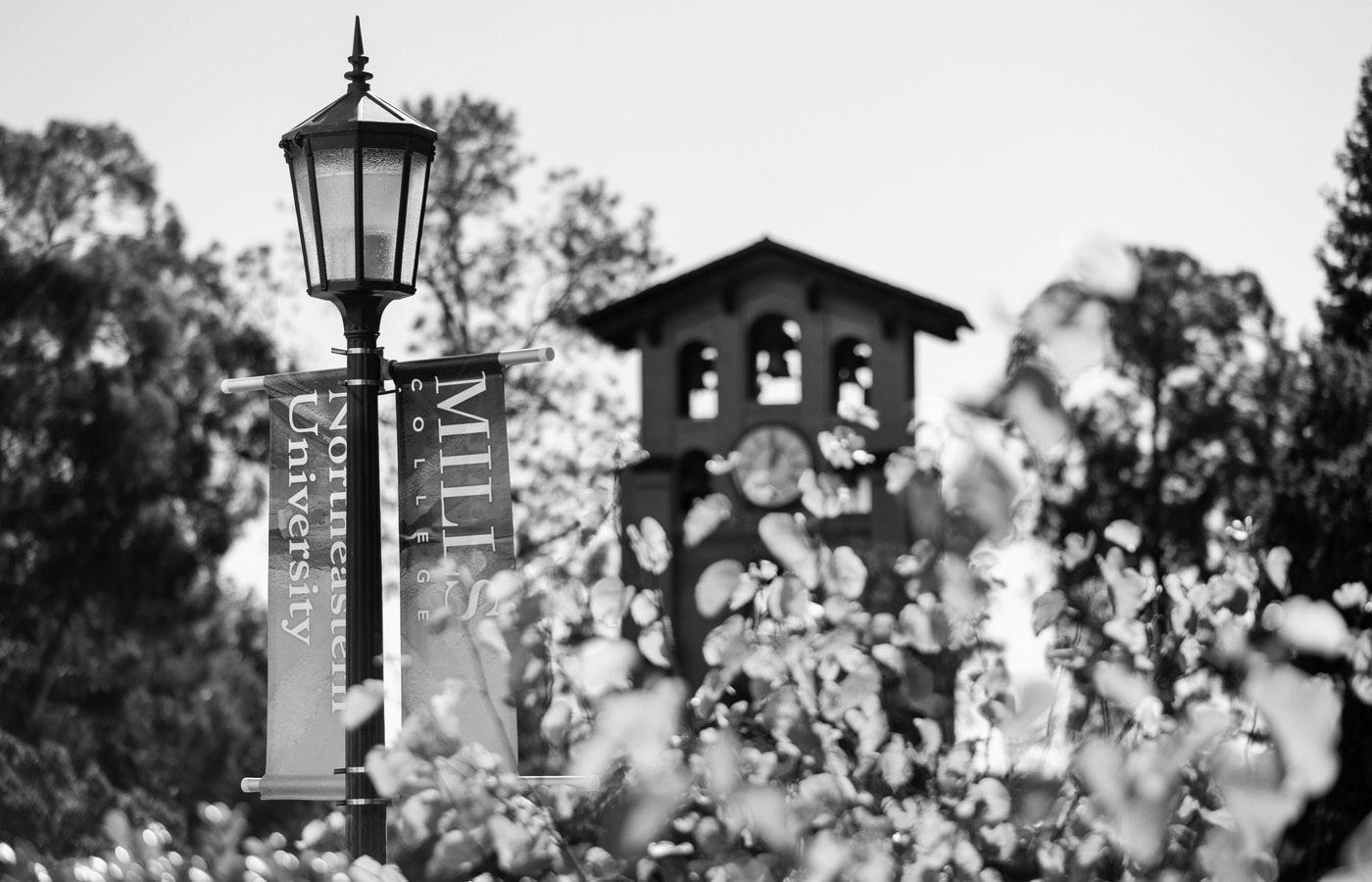
3 minute read
Madigan addresses post-grad unionization movement, eliciting opposition
from March 3, 2023
WORKERS, from front
This was just one of many moments of virtual collaboration among those involved in the yearslong effort to unionize the graduate student workers of Northeastern, as each graduate student’s work made scheduling synchronous meetings difficult. The shared Google Doc, however, symbolically encapsulated what Gitomer said was electric about their movement.
Advertisement
“Really quickly, we were able to churn out a really nice response to the email with everybody just kind of working on it at once,” Gitomer said. “All these people who probably have never been in a single meeting together, and we’re able to coalesce and produce something.”
This mobilization was a long time coming for Gitomer, who became interested in unionizing during the first year of her doctorate program, cata- lyzed by the university’s COVID-19 policies for grad students.
Monday through Friday, Gitomer does research on decentralized digital movements for the Communication Media and Marginalization Lab at the university’s Network Science Institute. She said she loves her work, and has no regrets about going into academia, but still advocates for a union. The whiteboard on her desk features a QR code captioned “If you’re reading this, do you wanna sign a union card?”
She said the administration continues to neglect graduate students’ grievances.
Computer science doctoral candidate Max von Hippel said this email was just another link in a long chain of events that demonstrate the university’s infantilizing treatment of graduate students. Last October, he fought alongside his peers against the university’s non-consensual installation of heat sensors underneath desks in the Interdisciplinary Science and Engineering Complex, many of which belonged to graduate students.
After graduate students immediately removed the sensors and placed them in the ISEC lobby, von Hippel said the administration only conceded when students’ repeated complaints generated negative press coverage.
“It was just another example in a long sequence of examples [of] the university completely failing to recognize the critical role that [grad students] play in its day to day operations,” von Hippel said. “Instead, consistently treating us essentially like children who do not need to be in the loop of any decision making, who can be spied on without their consent.”
The university has also warned graduate student workers that unionizing could fundamentally alter the “student-teacher” relationship members have with their faculty mentors, transforming it into a less enriching and more transactional “employee-worker” relationship.
Graduate students like Gitomer and von Hippel aren’t buying it.
“Tons of people have exploitative and abusive advisors,” Gitomer said. “They have no bargaining power or flexibility. If anything, the union would help in those kinds of situations.”
After delivering a letter to the university requesting a union election Feb. 3, Northeastern graduate students filed with the National Labor Relations Board to formally request a union election on Feb. 6., a major step forward for the Graduate Employees of Northeastern University-United Automobile Workers.
‘It takes years to organize a union, and you’re kind of seeing the end of it right now,” von Hippel said.
Among the faculty endorsements listed on the GENU-UAW website are the Department of English, the Department of Sociology and Anthropology, the Department of History and the Adjunct Faculty Union.
Von Hippel said if the university cared about preserving the student-advisor relationship, the formation of a union would be much higher on their priority list.
PhD students Adina Gitomer and Max Von Hippel pose for a portraits. Gitomer is one of the many graduate students to push back against Northeastern’s latest efforts to dissuade graduate students from unionizing. Von Hippel argued that the university fails to recognize the critical role that play at Northeastern and has advocated for rights for himself and his peers.
Grad students at Northeastern are paid less than the calculated living wage for one adult in Boston, meaning many students struggle with finances — a problem they believe a union would help address by negotiating higher wages.
Von Hippel’s previous apartment had a mouse infestation and walls thin enough for his neighbors’ yells to come through. As a result, von Hippel decided to move out and house-sit various properties rather than paying rent.
“Paying rent is financially burdensome when you’re only paid $40,000 a year,” von Hippel said. “If the university wants to make it more of a teacher-student relationship, they should make it so that being poor is less of a distraction.”
While Madigan’s email did address how unionization could affect student finances by citing the New York University graduate students’ union dues of “2% plus a $50 initiation fee,” Gitomer called the provost’s numbers “misinformation.”
“We don’t start paying dues until we win a contract, and the idea is that the benefits we win in that contract will make the dues entirely worth it,” Gitmoer said.
Von Hippel said all these indignities that graduate students have suffered at the hands of the administration are compounded by the fact that the university posits a collective bargaining agreement would interfere with their studies.
“The funny thing is that the university has literally never once listened to my needs, and so the idea that a third-party bureaucracy would only occasionally listen to my needs would be an upgrade over the current situation,” von Hippel said. “It’s a lot easier to organize collective action when you have a collective agency, when you have an actual structure by which people can collectively organize. And that is literally the definition of a union.”









